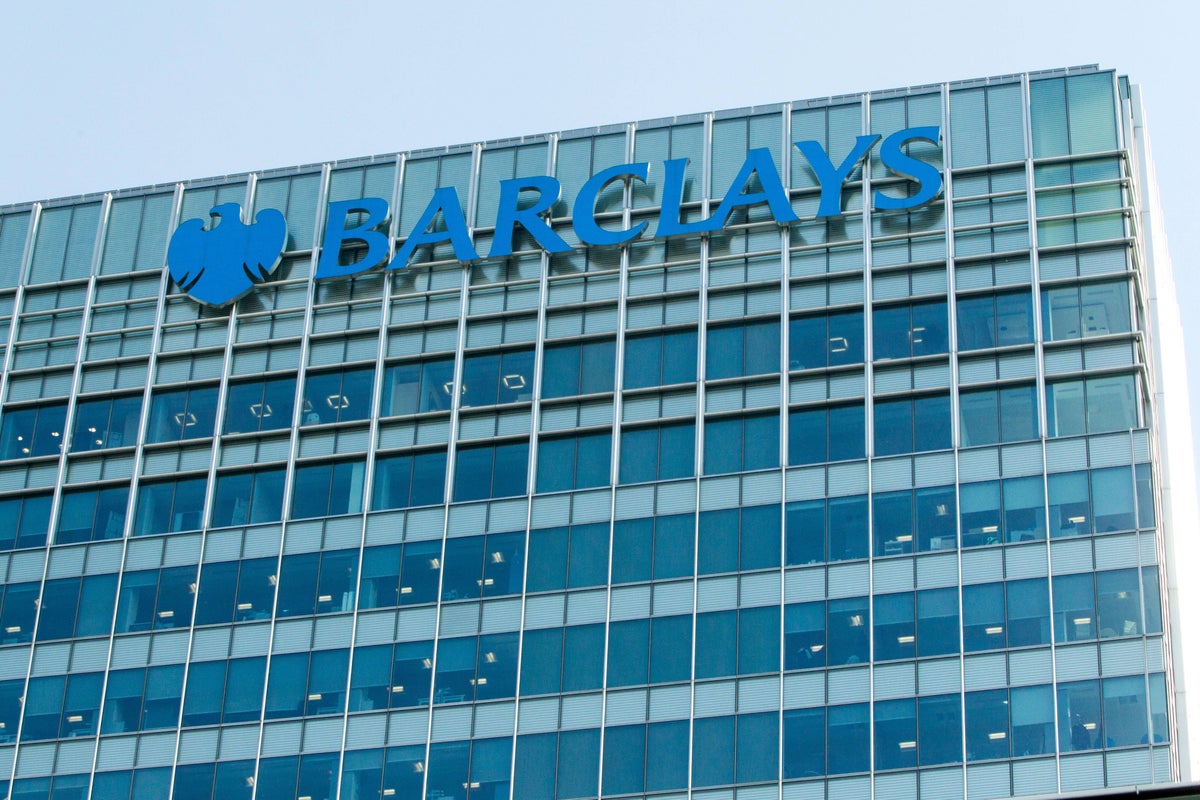
Barclays has reported lower earnings and cut its profitability forecasts, as it revealed it is considering cutting costs.
Shares in the banking giant tumbled by more than 8% on Tuesday morning after it gave an update on its financial performance for the third quarter.
It reported a pre-tax profit of £1.9 billion for the three months to September, slightly ahead of analysts’ expectations but below last year’s £2 billion profit.
The group is evaluating actions to reduce structural costs to help drive future returns— Barclays financial update
Barclays revealed it is mulling over ways to make the bank more cost-efficient and productive, which could result in structural changes across the business.
“The group is evaluating actions to reduce structural costs to help drive future returns,” it said in its financial update.
Group chief executive CS Venkatakrishnan, known within the group as Venkat, said: “We are trying to make, create, and run a more efficient organisation… you should expect us to look in all of those places where we can increase productivity.”
He added: “We see further opportunities to enhance returns for shareholders through cost efficiencies and disciplined capital allocation across the group.”
Barclays did not comment on whether cost-cutting could affect jobs, but Venkat said the bank will continue to “modulate the size of our workforce” around the world.
The bank said it will provide an update to investors within its full-year financial results announced next year.
Like other lenders, Barclays has benefited from higher interest rates, which have driven up mortgage costs, boosting income throughout the year.
But the savings market has been “extremely competitive”, with more pressure on banks to reward savers with higher rates, Barclays said.
It reported a 6% drop in deposits in the UK, which it said reflects customers moving cash to accounts with higher returns, and people using accounts to manage spending amid the higher cost of living.
Deposits are unlikely to pick up in the fourth quarter, leading the bank to cut its forecast for net interest margin (NIM) – an important measure showing the difference between what it earns from loans and pays out for deposits.
Barclays UK also has some issues to consider, with higher interest rates leading to higher savings rates— Richard Hunter, Interactive Investor
Richard Hunter, head of markets at Interactive Investor, said: “Barclays UK also has some issues to consider, with higher interest rates leading to higher savings rates.
“As such, there has been some customer migration away from the bank as higher yields are sought elsewhere, while lower deposit volumes and mortgage margin pressure add to a difficult mix.
“As such, the bank has reduced its NIM outlook to between 3.05% and 3.1%, down from a previously guided 3.2% and a 3.22% performance in the second quarter.”
Meanwhile, higher rates and weaker house prices prompted Barclays to increase its credit impairment charges to £433 million for the period, up from £381 million last year.
The increase came despite the proportion of people falling behind on loan repayments remaining low, it said.
It also revealed that income from its corporate and investment banking division fell by 6% year on year as volatility in the financial markets led to lower customer activity.
Shares in other UK banks fell on Tuesday amid investor nervousness over the wider banking sector, with Lloyds, NatWest, HSBC and Standard Chartered all seeing their share price move lower.







